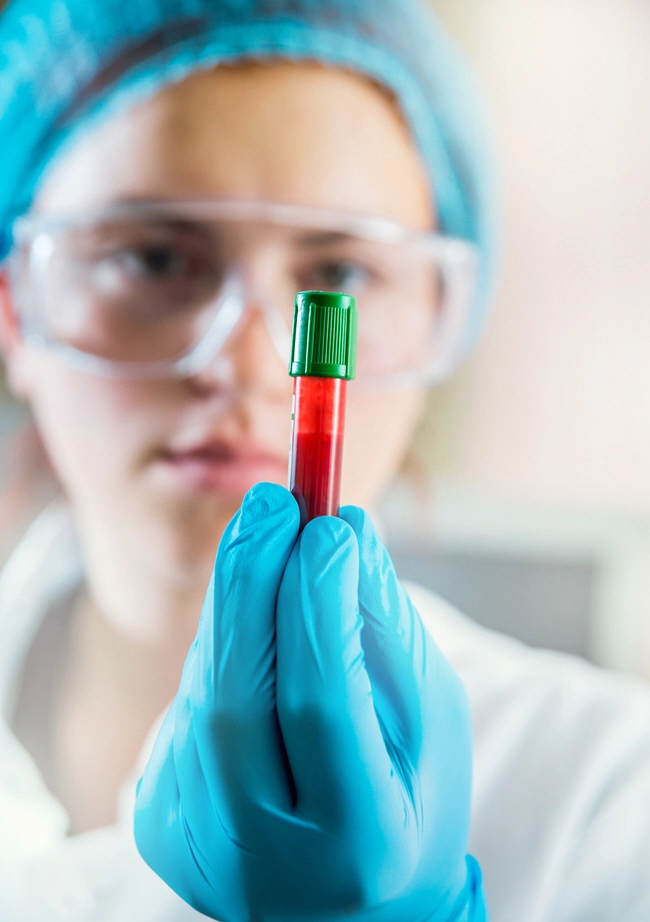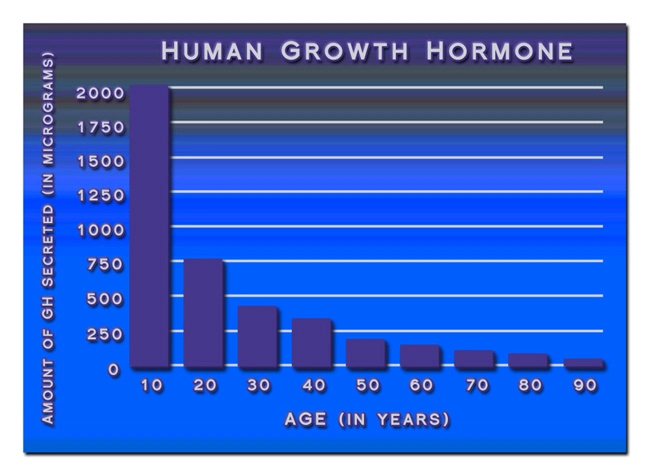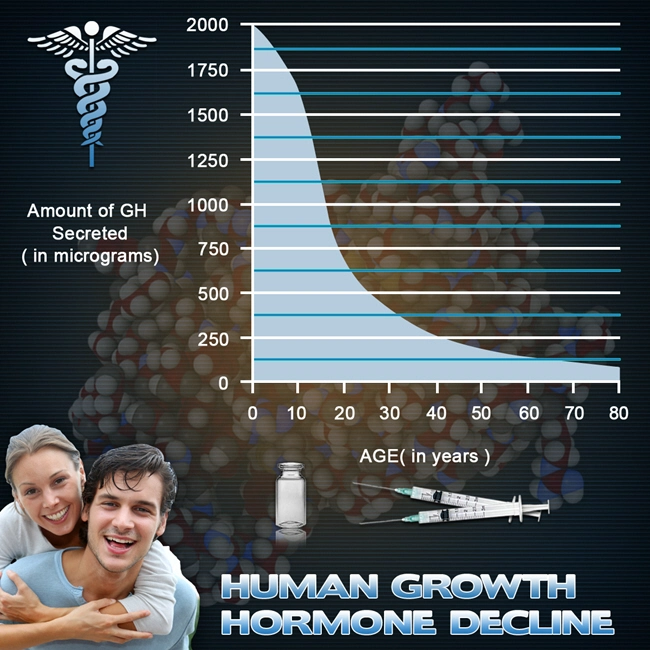
Introduction
Testicular trauma, though not frequently discussed, is a significant concern among American males, affecting individuals across various age groups and demographics. This article delves into the epidemiology, management strategies, and long-term outcomes associated with testicular trauma, aiming to enhance awareness and understanding among affected individuals and healthcare providers.
Epidemiology of Testicular Trauma
Testicular trauma accounts for a small but notable percentage of urological emergencies in the United States. Studies indicate that approximately 1 in 100,000 males will experience a testicular injury annually. The most common causes of testicular trauma include sports injuries, motor vehicle accidents, and interpersonal violence. Notably, younger males, particularly those involved in contact sports such as football and hockey, are at an elevated risk. Additionally, occupational hazards in industries like construction and manufacturing contribute to the incidence of testicular injuries among working-age men.
Management of Testicular Trauma
The management of testicular trauma hinges on prompt and accurate diagnosis, which often involves a physical examination and, in some cases, imaging studies such as ultrasound. The primary goal is to preserve testicular function and prevent complications such as testicular rupture or infarction. In cases of minor trauma, conservative management with ice, analgesics, and scrotal support may suffice. However, more severe injuries may necessitate surgical intervention, such as testicular repair or, in extreme cases, orchiectomy (removal of the testicle).
Emergency department protocols typically include a thorough assessment to rule out associated injuries, such as those to the urethra or bladder. Timely surgical consultation is crucial, especially when there is suspicion of testicular rupture, which requires immediate surgical exploration to salvage the testicle.
Long-Term Outcomes of Testicular Trauma
The long-term outcomes following testicular trauma vary depending on the severity of the injury and the timeliness and effectiveness of the intervention. In cases where conservative management is successful, patients often experience full recovery with minimal long-term sequelae. However, severe injuries that necessitate surgical intervention may lead to complications such as chronic pain, testicular atrophy, or infertility.
Psychological impacts are also significant, as testicular trauma can affect a male's sense of masculinity and sexual function. Counseling and support groups can play a vital role in helping patients cope with these challenges. Moreover, regular follow-up care is essential to monitor for potential complications and to address any emerging issues promptly.
Preventive Measures and Education
Preventive measures are crucial in reducing the incidence of testicular trauma. Education on the use of protective gear, particularly in sports and high-risk occupations, can significantly mitigate the risk. Public health campaigns aimed at raising awareness about the importance of immediate medical attention following a testicular injury can also enhance outcomes.
Conclusion
Testicular trauma remains a pertinent issue among American males, necessitating a comprehensive approach to its management and prevention. By understanding the epidemiology, implementing effective management strategies, and addressing long-term outcomes, healthcare providers can improve the quality of life for those affected. Increased awareness and education are key to reducing the incidence and impact of testicular injuries, ensuring that American males can lead healthy and active lives.
Contact Us Today For A Free Consultation
Dear Patient,
Once you have completing the above contact form, for security purposes and confirmation, please confirm your information by calling us.
Please call now: 1-800-380-5339.
Welcoming You To Our Clinic, Professor Tom Henderson.

- Navigating Life After Testicular Cancer: Health, Fertility, and Emotional Well-being [Last Updated On: March 15th, 2025] [Originally Added On: March 15th, 2025]
- Regular Check-ups Crucial for American Men's Testicular Health and Early Issue Detection [Last Updated On: March 17th, 2025] [Originally Added On: March 17th, 2025]
- Testicular and Prostate Health: A Holistic Guide for American Men [Last Updated On: March 17th, 2025] [Originally Added On: March 17th, 2025]
- Testicular Health Education: Vital for Young American Males' Well-being [Last Updated On: March 18th, 2025] [Originally Added On: March 18th, 2025]
- Diabetes Impact on Testicular Health: Risks, Management, and Prevention for American Men [Last Updated On: March 18th, 2025] [Originally Added On: March 18th, 2025]
- Testicular Health and Mental Well-being: A Holistic Guide for American Males [Last Updated On: March 18th, 2025] [Originally Added On: March 18th, 2025]
- Exercise Boosts Testicular Health: Benefits for American Males [Last Updated On: March 19th, 2025] [Originally Added On: March 19th, 2025]
- Economic Impact of Testicular Cancer Treatment on American Males: Challenges and Policy Needs [Last Updated On: March 19th, 2025] [Originally Added On: March 19th, 2025]
- Exploring Testicular Health: Causes, Diagnosis, and Advanced Treatment Options for Infertility [Last Updated On: March 20th, 2025] [Originally Added On: March 20th, 2025]
- Testicular Health's Impact on Cardiovascular Disease in American Men: Research and Prevention [Last Updated On: March 20th, 2025] [Originally Added On: March 20th, 2025]
- Testicular Health: Understanding Conditions, Testosterone, and HRT for American Men [Last Updated On: March 21st, 2025] [Originally Added On: March 21st, 2025]
- Stress Impact on Testicular Health and Fertility in American Men [Last Updated On: March 21st, 2025] [Originally Added On: March 21st, 2025]
- Testicular Health: Risks of Anabolic Steroids and Mitigation Strategies for American Men [Last Updated On: March 22nd, 2025] [Originally Added On: March 22nd, 2025]
- Psychological Barriers to Testicular Health Care in American Men: Causes and Solutions [Last Updated On: March 22nd, 2025] [Originally Added On: March 22nd, 2025]
- Testicular Pain: Causes, Diagnosis, and Treatment Options for American Men [Last Updated On: March 22nd, 2025] [Originally Added On: March 22nd, 2025]
- Testicular Health: Importance, Self-Exams, Cancer, and Breaking Stigma for American Men [Last Updated On: March 22nd, 2025] [Originally Added On: March 22nd, 2025]
- Chemotherapy's Impact on Testicular Health in American Male Cancer Survivors [Last Updated On: March 23rd, 2025] [Originally Added On: March 23rd, 2025]
- Sleep Quality's Vital Role in Enhancing Testicular Health and Function [Last Updated On: March 23rd, 2025] [Originally Added On: March 23rd, 2025]
- Testicular Health: Vital for Preventing Chronic Diseases in American Males [Last Updated On: March 23rd, 2025] [Originally Added On: March 23rd, 2025]
- Ultrasound: A Vital Tool for Testicular Health Diagnosis and Monitoring in American Males [Last Updated On: March 23rd, 2025] [Originally Added On: March 23rd, 2025]
- Testicular Health and Aging: Hormonal Changes, Conditions, and Treatments for Men [Last Updated On: March 23rd, 2025] [Originally Added On: March 23rd, 2025]
- Radiation Therapy's Impact on Testicular Health in American Males: Risks and Management [Last Updated On: March 24th, 2025] [Originally Added On: March 24th, 2025]
- Smoking's Harmful Effects on Testicular Health and Fertility in American Males [Last Updated On: March 24th, 2025] [Originally Added On: March 24th, 2025]
- Illicit Drugs' Impact on Testicular Health: Risks and Implications for American Men [Last Updated On: March 24th, 2025] [Originally Added On: March 24th, 2025]
- Antioxidants: Essential for American Men's Testicular Health and Fertility [Last Updated On: March 24th, 2025] [Originally Added On: March 24th, 2025]
- Socioeconomic Disparities in Testicular Health Care Access Among American Males [Last Updated On: March 24th, 2025] [Originally Added On: March 24th, 2025]
- Testicular Cancer Screening: Guidelines for Self-Exams and Early Detection in American Men [Last Updated On: March 25th, 2025] [Originally Added On: March 25th, 2025]
- Public Health Campaigns Boost Testicular Health Awareness in American Men [Last Updated On: March 25th, 2025] [Originally Added On: March 25th, 2025]
- Lifestyle Diseases and Their Impact on Testicular Health in American Men [Last Updated On: March 25th, 2025] [Originally Added On: March 25th, 2025]
- Nutrition's Role in Enhancing Testicular Health for American Men [Last Updated On: March 25th, 2025] [Originally Added On: March 25th, 2025]
- Occupational Hazards Impacting Testicular Health in American Male Workers: Risks and Prevention [Last Updated On: March 25th, 2025] [Originally Added On: March 25th, 2025]
- Testicular Health and Autoimmune Disorders: Impact, Management, and Prevention Strategies [Last Updated On: March 26th, 2025] [Originally Added On: March 26th, 2025]
- Long-Term Testicular Health Strategies for American Cancer Survivors [Last Updated On: March 26th, 2025] [Originally Added On: March 26th, 2025]
- Viral Infections and Testicular Health: Impacts on American Males' Fertility and Well-being [Last Updated On: March 26th, 2025] [Originally Added On: March 26th, 2025]
- Testicular Health: Functions, Conditions, and Fertility Preservation Options for American Males [Last Updated On: March 26th, 2025] [Originally Added On: March 26th, 2025]
- Enhancing Testicular Health Awareness and Education for American Males [Last Updated On: March 26th, 2025] [Originally Added On: March 26th, 2025]
- Endocrine Disruptors and Testicular Health: Risks and Mitigation for American Males [Last Updated On: March 26th, 2025] [Originally Added On: March 26th, 2025]
- Exercise Benefits for Testicular Health in American Men: A Scientific Insight [Last Updated On: March 26th, 2025] [Originally Added On: March 26th, 2025]
- Vitamins and Minerals: Enhancing Testicular Health in American Men [Last Updated On: March 26th, 2025] [Originally Added On: March 26th, 2025]
- Community Support Enhances Testicular Health Awareness and Outcomes in American Males [Last Updated On: March 27th, 2025] [Originally Added On: March 27th, 2025]
- Testicular Health and Reproductive Rights: A Comprehensive Guide for American Men [Last Updated On: March 27th, 2025] [Originally Added On: March 27th, 2025]
- Genetic Counseling: A Proactive Approach to Preventing Testicular Cancer in American Males [Last Updated On: March 27th, 2025] [Originally Added On: March 27th, 2025]
- Alcohol's Impact on Testicular Health: Risks and Mitigation Strategies for American Men [Last Updated On: March 27th, 2025] [Originally Added On: March 27th, 2025]
- Modern Lifestyles and Testicular Health: Challenges and Guidance for American Men [Last Updated On: March 27th, 2025] [Originally Added On: March 27th, 2025]
- Testicular Health and Environmental Impact: A Comprehensive Guide for American Males [Last Updated On: March 27th, 2025] [Originally Added On: March 27th, 2025]
- Testicular Health: Understanding Psychological Impacts and Promoting Holistic Care for Men [Last Updated On: March 27th, 2025] [Originally Added On: March 27th, 2025]
- Testicular Health and Mental Well-being: Breaking Stigma Through Education and Advocacy [Last Updated On: March 28th, 2025] [Originally Added On: March 28th, 2025]
- Testicular Health and Immune System: A Holistic Approach for American Males [Last Updated On: March 28th, 2025] [Originally Added On: March 28th, 2025]
- Support Groups: Vital for American Men with Testicular Cancer [Last Updated On: March 28th, 2025] [Originally Added On: March 28th, 2025]
- Telemedicine Revolutionizes Testicular Health Services for American Men [Last Updated On: March 28th, 2025] [Originally Added On: March 28th, 2025]
- Managing Chronic Testicular Pain: Strategies for American Males [Last Updated On: March 29th, 2025] [Originally Added On: March 29th, 2025]
- Testicular Health: Understanding Conditions and Preventive Measures for American Men [Last Updated On: March 30th, 2025] [Originally Added On: March 30th, 2025]
- Heat Exposure's Impact on Testicular Health in American Men: Risks and Mitigation Strategies [Last Updated On: March 30th, 2025] [Originally Added On: March 30th, 2025]
- Herbal Supplements for Enhancing Testicular Health in American Men [Last Updated On: April 1st, 2025] [Originally Added On: April 1st, 2025]
- Testicular Health and Mental Resilience: A Comprehensive Guide for American Men [Last Updated On: April 3rd, 2025] [Originally Added On: April 3rd, 2025]
- Advancements in Testicular Health: Innovations in Cancer, Infertility, and Hormonal Therapies [Last Updated On: April 5th, 2025] [Originally Added On: April 5th, 2025]
- Antibiotics' Impact on Testicular Health in American Men: Risks and Preventive Measures [Last Updated On: April 5th, 2025] [Originally Added On: April 5th, 2025]
- Mental Health Professionals' Vital Role in American Men's Testicular Health Care [Last Updated On: April 6th, 2025] [Originally Added On: April 6th, 2025]
- Enhancing Testicular Health: Strategies for American Males [Last Updated On: April 7th, 2025] [Originally Added On: April 7th, 2025]
- Pesticide Exposure and Testicular Health: Risks and Prevention in American Men [Last Updated On: April 7th, 2025] [Originally Added On: April 7th, 2025]
- Environmental Policies Crucial for American Male Testicular Health and Cancer Prevention [Last Updated On: April 9th, 2025] [Originally Added On: April 9th, 2025]
- Physical Therapy: A Non-Invasive Approach to Managing Testicular Health Issues in Men [Last Updated On: April 10th, 2025] [Originally Added On: April 10th, 2025]
- Community Health Workers: Vital in Enhancing Testicular Health Awareness in American Men [Last Updated On: April 11th, 2025] [Originally Added On: April 11th, 2025]
- Heavy Metals' Impact on Testicular Health in American Men: Risks and Prevention [Last Updated On: April 11th, 2025] [Originally Added On: April 11th, 2025]
- Plastic Exposure's Impact on Testicular Health in American Men: Emerging Research and Mitigation [Last Updated On: April 11th, 2025] [Originally Added On: April 11th, 2025]
- Understanding Testicular Health: Anatomy, Disorders, and Self-Care for American Males [Last Updated On: April 12th, 2025] [Originally Added On: April 12th, 2025]
- Promoting Testicular Health Through U.S. Workplace Wellness Programs [Last Updated On: April 13th, 2025] [Originally Added On: April 13th, 2025]
- Testicular Health: Functions, Disorders, and U.S. Policy Impacts on Men's Well-being [Last Updated On: April 13th, 2025] [Originally Added On: April 13th, 2025]
- Testicular Health and Mental Wellness: A Holistic Approach for American Males [Last Updated On: April 15th, 2025] [Originally Added On: April 15th, 2025]
- Exercise Enhances Testicular Health: Blood Flow, Oxidative Stress, and Temperature Regulation [Last Updated On: April 16th, 2025] [Originally Added On: April 16th, 2025]
- Air Pollution's Impact on Testicular Health in American Men: Risks and Recommendations [Last Updated On: April 16th, 2025] [Originally Added On: April 16th, 2025]
- Educational Campaigns Boost Testicular Cancer Awareness and Early Detection in American Men [Last Updated On: April 17th, 2025] [Originally Added On: April 17th, 2025]
- Advocating for Enhanced Testicular Health Policies and Awareness in the U.S. [Last Updated On: April 18th, 2025] [Originally Added On: April 18th, 2025]
- Testicular Health: Nutrition, Monitoring, and Education for American Males [Last Updated On: April 18th, 2025] [Originally Added On: April 18th, 2025]
- Integrating Testicular and Mental Health Services for Holistic Male Care [Last Updated On: April 18th, 2025] [Originally Added On: April 18th, 2025]
- Testicular Health and Mental Wellness: A Guide for American Males [Last Updated On: April 18th, 2025] [Originally Added On: April 18th, 2025]
- Water Contaminants' Impact on Testicular Health in American Men: Risks and Prevention [Last Updated On: April 20th, 2025] [Originally Added On: April 20th, 2025]
- Genetic Testing: Revolutionizing Testicular Health Management for American Men [Last Updated On: April 20th, 2025] [Originally Added On: April 20th, 2025]
- Climate Change Impacts on American Men's Testicular Health and Fertility [Last Updated On: April 21st, 2025] [Originally Added On: April 21st, 2025]
- Advancements in Testicular Prostheses Enhance Life Post-Orchiectomy for American Males [Last Updated On: April 21st, 2025] [Originally Added On: April 21st, 2025]








